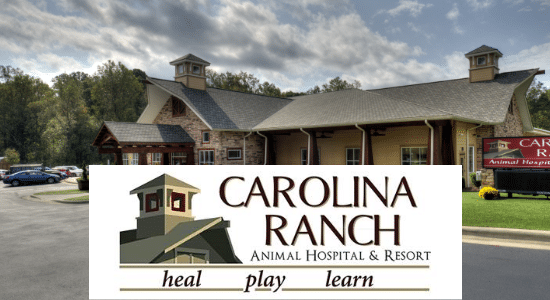Canine Flu: What You Need to Know

Canine Flu? Canine Influenza Virus? CIV? I see it on the news!!! And now there are cases in North Carolina!!!!! There have been confirmed cases in Asheville and the Piedmont. There are possible cases in the Raleigh area. Don’t let the media fool you – though we are concerned about the flu, there are no CONFIRMED cases in our area yet, and just like the human flu, there are a lot of questions.

Here’s a little background about the recent cases. In late March, veterinarians in the Chicago area noticed an increase in the number of dogs presenting to their hospitals with respiratory issues. The signs involved the respiratory system – coughing, nasal and ocular discharge, and lethargy. The signs in most dogs were only moderate but some were severe and even included pneumonia. Veterinarians and pharmaceutical companies (Merck) worked together and identified the cause as Canine Flu. Since H3N8 has been in the US, this was initially presumed to be the strain that is responsible for the current outbreak; but, with further testing at Cornell University and the University of Wisconsin, they have identified the true causative agent as H3N2. H3N2 has not been detected in North America before. There was an outbreak of avian origin H3N2 influenza in pet dogs in South Korea in 2007 and also found in sick dogs in southern China in 2006 and 2007. Since first appearing in Chicago, the virus has spread to the Midwest. In June, it found its way to Atlanta where they are still battling many cases. Now, it has made its way to South Carolina and to our home, North Carolina. Because this virus has not been seen in North America before, dogs in the United States do not have immunity and may be susceptible. This virus is not contagious to humans but may be able to spread to cats.
We think that dogs will shed the virus for 7- 8 days after they are exposed, but signs/ symptoms typically don’t begin until 3- 4 days after exposure. (Recent research from the University of Wisconsin indicates that some dogs may shed for up to 21 days.) So, just like the human flu, dogs are infectious BEFORE symptoms are noted. CIV is spread through direct contact with respiratory discharge from infected dogs (includes by air through sneezing, barking, coughing or by exposure to contaminated objects like toys and bowls). Symptoms can be mild to severe – but it is thought that 1 in 5 dogs will develop pneumonia. Signs to watch your pet for include:
- Coughing
- Breathing quickly/ respiratory difficulty (not panting from exercise)
- Nasal discharge
- Decreased appetite/ not eating
- Lethargy
- Fever
Is my dog at risk?
Because the flu is spread by respiratory discharges, it can be anywhere dogs are. Dogs that are social – go to dog parks, day cares, board, are exposed to more dogs and may be at slightly higher risk. We recommend avoiding places where dogs that are unvaccinated may be (dog parks, pet stores, etc.). BUT we want to continue to let our dogs enjoying their normal activities. So, if they like doggy day care, continue but make sure that the facility has strict vaccination guidelines so that my dog will be the most protected. The following paragraphs talk more about vaccines and what you can do to protect your pet.
WHAT CAN I DO?
There are multiple Canine Infectious Respiratory pathogens. Protecting your pet against as many as possible will help them in the face of new infections. Some diseases can cause immunosuppression which may predispose our pets to secondary infections from other respiratory bacteria and viruses. Also, the very way the diseases progress may predispose to secondary infections.
At Carolina Ranch Animal Hospital we recommend vaccinating with the intranasal (in the nose) Bordetella vaccine every 6 months. These intranasal vaccines cause a mucosal response which has been shown to have increased efficacy when compared to the injectable and oral versions. The Intratrac III that we use gives protection against Bordetella, Parainfluenza and Adenovirus. Protection against ALL 3 viruses may help protect not only from these but decrease susceptibility if exposed to other viruses, like CIV. If your pet is social, we recommend vaccinating every 6 months.
Areas where dogs socialize (dog parks, doggie daycare, etc.) may be the likeliest places for the H3N2 virus to be transmitted. The Doggie Daycare yards at Carolina Ranch are disinfected daily, and there is no soil that may harbor the virus. The goal is cleanliness, and we take precautions to maintain high levels of sanitation.
We also carry the Canine Flu Vaccine at Carolina Ranch. This vaccine is formulated to protect against H3N8 CIV. We do not know if there is cross protection for H3N2 but there is hope that it may. The manufacturer, Merck, is guaranteeing this product for both strains. If your dog is social or travels a lot, we recommend you talk to one of our doctors to discuss this vaccine. This is a two part series – they receive the first vaccine and then a booster 2- 4 weeks later and are protected 2 weeks AFTER the booster vaccine.
So, what are our recommendations? Get both the intranasal Bordetella and H3N8 CIV vaccines and use sanitized play areas if possible. The vaccines provide protection internally and the clean environment combats the virus externally.




